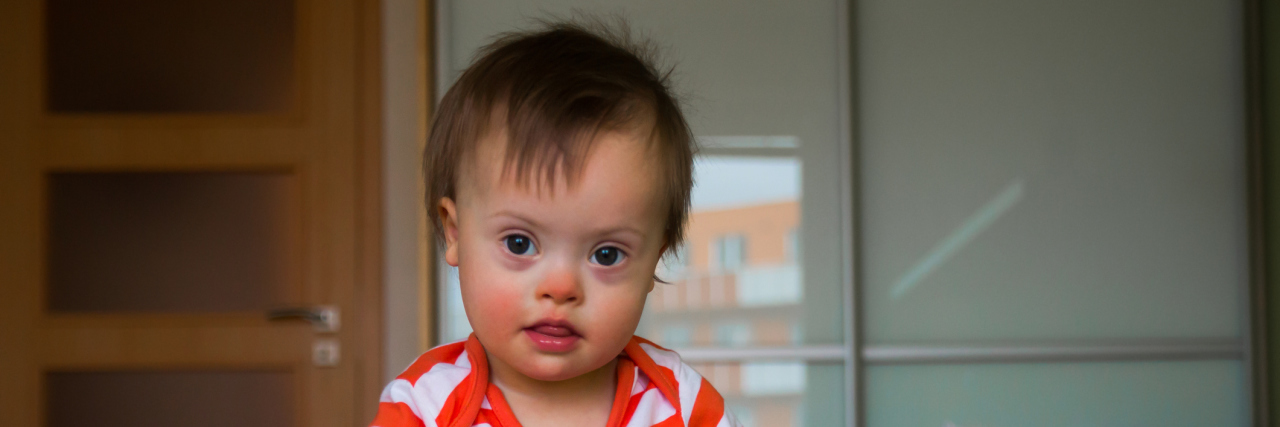On Wednesday, Ohio lawmakers voted 20-12 in favor of a law that would criminalize abortions due to a prenatal diagnosis of Down syndrome. Once the bill is in the hands of Republican Governor John Kasich, he will have 10 days to sign it into law.
Under this law, medical professionals could lose their license and face felony charges, including jail time, for performing an abortion due to a prenatal Down syndrome diagnosis. Women who choose to have abortions would not face criminal charges.
In 2015, Kasich told CNN that he would sign a bill that bans abortions in cases with Down syndrome. In March, Ohio passed a 20-week post-fertilization abortion ban and has passed over 20 “pro-life” laws under Kasich.
U.S. District Judge Tanya Walton Pratt prevented a similar law from going into effect in Indiana when then-Gov. Mike Pence signed a bill into law that stated an abortion could not be done based on a diagnosis of fetal disability, race, color, national origin, ancestry or sex of the fetus. Pratt’s grounds for blocking the law was that it restricted a woman from getting an abortion before viability, an established right under Roe v. Wade, which states that an abortion may be done before a fetus can survive outside the womb.
The Down syndrome community, along with the general population, has been divided over Ohio’s bill and ones like it in other states. Some celebrate it as an “anti-discrimination law” while others express concerns this will be the beginning of future laws pushing to take away a woman’s right to choose. As expected, much of the conversation has become a “pro-life” vs. “pro-choice” debate.
Why was this legal anyways? There should be more options for mother’s other than abortion. I found out about this option watching #BornThisWay & I disagree with doctors giving mother’s those options.
— Laffy Taffy (@winggirle) December 13, 2017
So it’s okay to abort a perfectly healthy baby but not a special needs baby? That doesn’t make any sense.
— Ashli Hollander (@ashli_hollander) December 13, 2017
Again, restriction of women’s rights to have informed, concise information about the medical issues that their family could face. & an issue that should stay between the woman and her physician, as we can see that any medical/social assistance post birth sure ain’t happening
— SaraHbeeH (@saraieo) December 13, 2017
I am all for pro choice but down syndrome shouldn’t be a choice for abortion. We can’t be killing babies that aren’t perfect. There has to be a red line somewhere
— spinnie (@LHordern) December 13, 2017
If this ban passes, some argue there must also be supports put in place for parents and children with Down syndrome. Proposed legislation in the last year, which the disabled community has protested, has included cuts to current institutions, such as Medicaid and special education services, meant to help people with Down syndrome and other disabilities.
And meanwhile, we're gutting healthcare and children's health insurance programs. Stay out of women's wombs.
— KAWV (@kaw0606) December 13, 2017
& hopefully these same Ohio conservatives will also become advocates for universal healthcare. Because they surely aren’t just pro-life while in the womb, right?
— Lace (@lacenlyn) December 13, 2017
What safety net exists to care for these angels when they outlive their parents? Will the state of Ohio commit to do so in a loving and compassionate manner?
— Karen (@KNCHRI) December 13, 2017
This is sick. Republicans want to force women to birth children then want to cut all programs to help the sick children which they forced to be birthed. But yeah…Pro life…
— Matt Todd (@wogggieee) December 13, 2017
But they won’t reauthorize CHIP? I just don’t understand how you can be against abortion but won’t fund healthcare for children that need it.
Like when you quote Leviticus but eat shellfish.— Lesbian President (@FirstLezPrez) December 13, 2017
I assume if Ohio passes this law, the state will be willing to pay for the child's medical expenses, pay for care givers, and pay for any extra equipment the parents need to care for the child. Also, I assume the state will pay for care once the child becomes an adult.
— Joseph Sparks (@jjseagle) December 13, 2017
Hopefully there will be another bill alongside it, for adequate funding to support the kids that will be born to unprepared parents, as a result.
— Karma San Diego ???? (@TrishaBerube) December 13, 2017
Getty image by Tatiana Dyuvbanova

